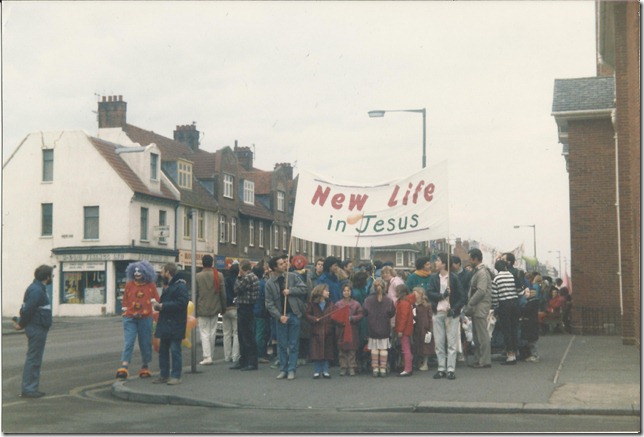The verse I want to pick out from this portion of Ps 119 is one that came to my attention after watching the movie “Luther”. In Ps 119:94, the Psalmist says “I am yours, save me”. There is a powerful moment in the film where Johan von Stauptiz urges Martin Luther, who was despairing of finding a gracious God at the time, to use it as a prayer, lifting his eyes from himself and looking to Christ:
“Martin, what is it you seek?”
“A merciful God! A God that I can love! A God who loves me…”
“Then look to Christ…bind yourself to Christ, and you will know God’s love. Say to him, “I am Yours – save me!”
Saved from what?
But has this half-verse been snatched away from its context and made to mean something alien to the original text? What was the Psalmist praying to be saved from? Verse 95 might suggest that it is not God’s judgement he wants to be saved from, but the harm that wicked people want to do to him:
95 The wicked are waiting to destroy me,
but I will ponder your statutes.
However, verses 92-93 paint a slightly different picture, one in which the Psalmist links his own personal safety with his loyalty to God’s word. In other words, he recognises that there is a graver danger than falling into the hands of the wicked, and that is falling in line with the wicked and sharing their fate:
92 If your law had not been my delight,
I would have perished in my affliction.
93 I will never forget your precepts,
for by them you have preserved my life.
So we could say the Psalmist has “holistic salvation” in mind – salvation from harm in this life and salvation from damnation in the next; salvation from the schemes of the wicked and salvation from the judgment of God.
Saved on what basis?
But what is the basis of that salvation? The ESV rendering of verse 94 could be interpreted as presenting a legalistic understanding – he expects to be saved because of his obedience to God’s precepts:
94 I am yours; save me,
for I have sought your precepts.
The NIV however phrases the verse quite differently, suggesting that the Psalmist’s hope of salvation rests on the simple fact that he belongs to God:
94 Save me, for I am yours;
I have sought out your precepts.
Theologically, I prefer the NIV here. My confidence that I will be saved is not based on my obedience to God’s precepts, but on the knowledge that I belong to him, that I have been bought by the blood of Christ.
In any case, a careful reading of the ESV reveals that it is not “obedience” that is put forward as the basis for salvation. He says he has “sought” God’s precepts, which, for the Psalmist, is pretty much the same thing as saying he has sought God. Probably if the ESV is right, the sense is that seeking after God is the hallmark of belonging to him. Those who belong to God desire to please him with a life of obedience and therefore “seek his precepts.” In that sense it is no different from the Jesus’ teaching that those who abide in him will bear fruit.
Saviour and Lord
But perhaps the most attractive thing about the phrase “I am yours, save me” is the indissoluble link between having Jesus as your Saviour, and belonging to him. We cannot say to Jesus, “I want salvation, but I don’t want you”. You cannot have him as your saviour without also coming into a new relationship with God as your Father, and Jesus as your Lord. When we are saved we don’t just receive benefits from Christ, we find ourselves, to use Paul’s language, “in Christ”. We enter into a new life in which Jesus is right at the centre.
So I think Staupitz was right to point Luther to a God of grace using this verse. He’s not a God who will save us only if we impress him enough with our commandment-keeping. He’s a God who delights to save all who call upon him, all who lift their eyes off themselves and look to Christ alone for salvation.

